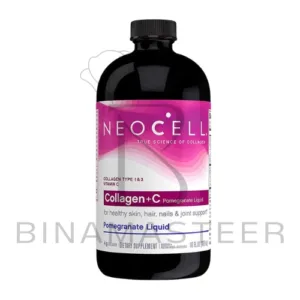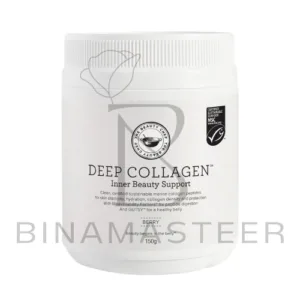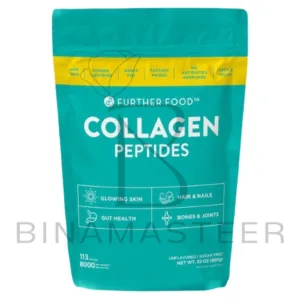news
Skin Health Supplements: Nourishing Your Glow from Within
The pursuit of radiant, healthy skin is a timeless endeavor. While topical creams, serums, and treatments have long been the cornerstone of skincare routines, a growing body of evidence suggests that true skin health is a reflection of what’s happening inside our bodies. Skin health supplements are designed to bridge the gap between our nutritional intake and our skin’s specific needs, providing essential nutrients that support its structure, protect it from damage, and enhance its natural glow. This comprehensive guide will explore the vital connection between nutrition and skin health, delve into the most effective supplements for a range of skin concerns, and help you build a holistic approach to skincare that works from the inside out.

The Skin-Nutrition Connection
Your skin is the body’s largest organ, and it is in a constant state of renewal. This process requires a steady supply of nutrients to function optimally. A diet lacking in key vitamins, minerals, and fatty acids can lead to a variety of skin issues, including dryness, inflammation, and premature aging.
- Building Blocks: Nutrients like protein (collagen, elastin), fatty acids, and zinc are the literal building blocks of healthy skin cells.
- Defense System: Antioxidants, such as Vitamin C and E, protect the skin from damage caused by free radicals, which are a major contributor to aging.
- Hydration and Barrier Function: Omega-3 fatty acids and ceramides help maintain the skin’s moisture barrier, keeping it hydrated and protected from environmental aggressors.
The Powerhouse Supplements for Skin Health
While a balanced diet is the foundation, certain supplements have been clinically studied for their specific benefits to skin.
- Collagen: As discussed in the previous article, collagen is the most abundant protein in the skin, giving it structure and elasticity. Supplementation with hydrolyzed collagen peptides can help stimulate the body’s own collagen production, leading to improved skin hydration and reduced wrinkle depth.
- Vitamin C: This is a superstar for skin. It’s essential for collagen synthesis and is a powerful antioxidant. It helps protect the skin from sun damage and brightens the complexion.
- Vitamin E: Another potent antioxidant that works synergistically with Vitamin C. It helps protect the skin’s lipid barrier and can reduce UV damage.
- Zinc: A crucial mineral for skin repair and wound healing. Zinc also helps regulate oil production and can be beneficial for those with acne.
- Omega-3 Fatty Acids: These essential fats are known for their anti-inflammatory properties. They can help calm inflammatory skin conditions like acne, psoriasis, and eczema and are vital for maintaining the skin’s barrier function.
- Hyaluronic Acid (HA): While the body naturally produces HA, supplementing with it can help boost the skin’s moisture content, leading to a plumper, more hydrated appearance.
- Coenzyme Q10 (CoQ10): A powerful antioxidant that is naturally present in our skin but declines with age. CoQ10 helps protect the skin from sun damage and supports cellular energy production.

Supplementing for Specific Skin Concerns
The world of skin supplements can be tailored to address specific issues.
- For Anti-Aging:
- Collagen Peptides: To rebuild and strengthen the skin’s structural framework.
- Vitamin C & E: To protect against free radical damage and promote collagen synthesis.
- CoQ10: To support cellular energy and fight oxidative stress.
- For Acne-Prone Skin:
- Zinc: To reduce inflammation and regulate oil production.
- Omega-3s: To calm inflammation and reduce breakouts.
- Probiotics: A healthy gut microbiome is linked to healthy skin. Probiotics can help balance the gut and reduce systemic inflammation.
- For Dry Skin:
- Omega-3 Fatty Acids: To fortify the skin’s moisture barrier.
- Hyaluronic Acid: To attract and retain moisture in the skin.
- For a Brighter Complexion:
- Vitamin C: To help fade dark spots and even out skin tone.
- Glutathione: Known as the “master antioxidant,” glutathione can help inhibit melanin production, leading to a brighter complexion.

A Holistic Approach to Skin Wellness
Supplements are a powerful tool, but they are not a magic bullet. They work best when combined with a holistic approach to skin wellness.
- Eat a Nutrient-Rich Diet: Prioritize a diet rich in colorful fruits and vegetables, healthy fats, and lean protein.
- Stay Hydrated: Drinking enough water is non-negotiable for hydrated, plump skin.
- Protect Your Skin from the Sun: Sunscreen is the most important anti-aging product you can use.
- Get Enough Sleep: Sleep is when your skin repairs and regenerates itself.
- Manage Stress: High levels of stress can trigger inflammation and exacerbate skin conditions.
Conclusion: The New Skincare Ritual
The future of skincare is an inside-out approach. While we continue to benefit from the power of topical products, integrating skin health supplements into our daily routine can provide a powerful, synergistic effect. By nourishing your body with the essential vitamins, minerals, and fatty acids it needs, you can support your skin’s natural functions and achieve a truly radiant, healthy glow that lasts. Remember to always consult with a dermatologist or a healthcare professional before starting any new supplement regimen to ensure it’s right for you.

